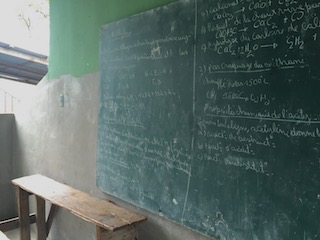Course Description
Caribbean Creole languages result from language contact via colonization and the slave trade. In this course we explore the history of Creole languages from cognitive, historical and comparative perspectives. We evaluate popular theories about “Creole genesis” and the role of language acquisition. Then we …
Caribbean Creole languages result from language contact via colonization and the slave trade. In this course we explore the history of Creole languages from cognitive, historical and comparative perspectives. We evaluate popular theories about “Creole genesis” and the role of language acquisition. Then we explore the non-linguistic aspects of Creole formation, using sources from literature, religion and music. We also look into issues of Caribbean identities as we examine Creole speakers’ and others’ beliefs and attitudes toward their cultures. We also make comparisons with relevant aspects of African-American culture in the U.S.
Course Info
Instructor
Departments
Learning Resource Types
theaters
Lecture Videos
assignment
Written Assignments
assignment_turned_in
Presentation Assignments with Examples
Instructor Insights

At this school in the outskirts of Port au Prince, Haiti, chemistry lessons are taught in French rather than the Haitian Creole most familiar to its students. (Photo courtesy of Curt Newton, used with permission).








